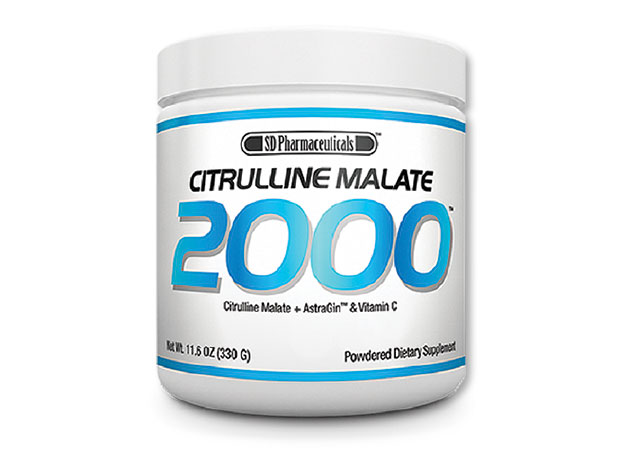Muscle Talk

Jaime Filer graduated with a kinesiology degree from York University, where she was a varsity athlete. She’s also a former competitive bodybuilder who competed in drug-tested events throughout North America. If something new is trending in fitness, chances are Jaime’s already tried it!

Testosterone - Rutin - Citrulline Malate
Supplement with K to get more T
Japanese researchers have found a link between levels of vitamin MK-4 and a reduced risk of age-related diseases via increased testosterone production. In their study, they found that when lab animals got 75 milligrams per kilogram of body weight of vitamin MK-4, their testosterone levels and concentration of testicular testosterone increased. MK-4 is just another form of vitamin K; K1 is plant-based and contains various versions, and K2 is animal-based and also contains various versions. MK-4 falls under the K2 version, and what’s notable about this is that the animal food with high K2 content triggered a cascade of enzymatic activity, which led to the synthesis of testosterone, while the K1 version did not. Humans can get K2 (MK-4) in their diets by consuming grass-fed animal meats or supplementing with around 30 to 45 milligrams every couple of days (45 milligrams is the human equivalent of the animal dose).

Rooting for rutin
Whats exciting about science, especially in the 21st century, is that researchers are not only discovering new compounds and chemicals every day to help us but also constantly discovering new uses and benefits for old compounds! A perfect example of this is rutin, aka rutoside or quercetin-3-O-rutinoside. It’s a phenol/compound found in a specific type of plant species, and certain vegetables, tea, seeds, and fruit. For years, it’s been studied for its anti-inflammatory, antibacterial, and blood-thinning properties, among other health benefits. Recently, however, South Korean scientists have studied it for fighting fat. They gave rats either a control diet, a high-fat/high-calorie diet, or a high-fat/high-calorie diet plus rutin. After 12 weeks, both groups of high-fat food rats were heavier than the control group rats, but the rutin group only gained half as much weight as the high-fat-only rats. It actually prevented weight gain! For someone who weighs about 190 pounds, 425 milligrams a day would be an appropriate dose.
Citrulline: Fighting fat and fatigue
Citrulline malate is a common and effective ingredient in pre-workout powders. It’s known as the “fatigue fighter” because it can speed up the process of ammonia clearance, recycle lactic acid to use for energy, and increase NO production. But it has recently been proven to do more! A study published recently used two groups of rats—one that got one gram of citrulline per kilogram of body weight, and another that got one gram of a mix of other nonessential amino acids every day for 12 weeks. The results were that the L-citrulline group had 13 percent less fat and 9 percent more lean body mass
 than rats who’d been given the mix. They both weighed the same, but their body composition was completely different. So if you’re already taking this super-supplement, you’re off to a great start! The human “dose” from the experiment would be about 0.16 grams per kilogram of body weight.
than rats who’d been given the mix. They both weighed the same, but their body composition was completely different. So if you’re already taking this super-supplement, you’re off to a great start! The human “dose” from the experiment would be about 0.16 grams per kilogram of body weight.
For more info on Citrulline Malate from the Supplement Godfather himself, check out this article!

